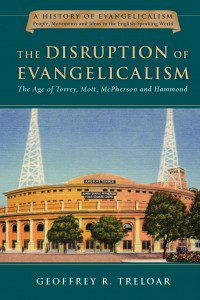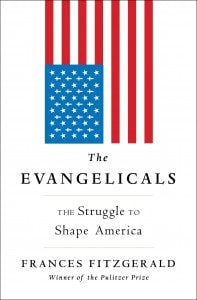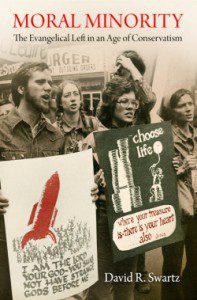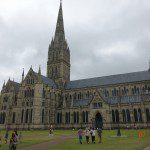What is the future of the evangelical past? That was the question on the mind of Baylor historian — and Anxious Bench guest blogger — Elesha Coffman as she ended her recent Christianity Today review of Geoffrey Treloar’s The Disruption of Evangelicalism: The Age of Torrey, Mott, McPherson and Hammond.
 Covering the early 20th century (which the author admits has understandably “not been popular with students of the history of evangelicalism”), Treloar’s book “not only marks the end of a five-book series” for InterVarsity Press, “but also suggests the end of an era in evangelical scholarship.” The IVP series on evangelicalism was co-edited by Mark Noll, who began its first installment by thanking fellow historians connected through the Institute for the Study of American Evangelicals. Now not only has Noll retired, but the ISAE is closed. Coffman concludes:
Covering the early 20th century (which the author admits has understandably “not been popular with students of the history of evangelicalism”), Treloar’s book “not only marks the end of a five-book series” for InterVarsity Press, “but also suggests the end of an era in evangelical scholarship.” The IVP series on evangelicalism was co-edited by Mark Noll, who began its first installment by thanking fellow historians connected through the Institute for the Study of American Evangelicals. Now not only has Noll retired, but the ISAE is closed. Coffman concludes:
Books about evangelicals continue to appear steadily, but fewer and fewer of them reflect the sympathetic, theologically-centered insider perspective of the previous generation’s work…. The field is changing, dramatically.
Treloar writes about one era of disruption in evangelicalism. His book appears at another. It remains to be seen whether polarization will rend the movement this time or if theological creativity and a robust, irenic center can emerge again to carry the day.
Indeed, the future is murky. In his presidential address to the Conference on Faith and History last October, Jay Green noted the increasing alienation of younger CFH members from evangelicalism and wondered if that organization would again contend for that tradition. My own response was a conflicted yes, so long as historians “[c]ontinue to tell a more complicated story of evangelicalism itself, one whose cast of characters is more diverse than the usual (white, male, middle class) suspects of the Great Awakenings and post-WWII neo-evangelicalism.”
Indeed, Coffman detects growing interest in gender and sexuality among historians of evangelicalism — as long-time readers may have noticed here at this blog in the past year, particularly thanks to posts by Kristin, Beth, and guests like Andrea Turpin. For that matter, Aimee Semple McPherson’s Angelus Temple is on the cover of Treloar’s book, but her turn in the spotlight lasts only three pages. “To the extent that they were exceptional,” writes Treloar of McPherson and some contemporaries, “a feminist agenda was implicit in the careers of all these women. But it was not taken up. Gender was not a pressing social issue for interwar evangelicals.”
 Coffman also observes the phenomenon of non-evangelicals writing about evangelicalism. Thanks to the efforts of insiders like Noll, George Marsden, and Nathan Hatch, this field of history has been revitalized and made attractive to observers who don’t share their faith commitments. The book Coffman mentions here (journalist Frances Fitzgerald’s The Evangelicals) is a synthesis of existing scholarship (much of it by evangelical historians), but I’m certainly looking forward to reading original scholarship by outsiders to evangelicalism: e.g., Adam Laats’ forthcoming history of evangelical higher education.
Coffman also observes the phenomenon of non-evangelicals writing about evangelicalism. Thanks to the efforts of insiders like Noll, George Marsden, and Nathan Hatch, this field of history has been revitalized and made attractive to observers who don’t share their faith commitments. The book Coffman mentions here (journalist Frances Fitzgerald’s The Evangelicals) is a synthesis of existing scholarship (much of it by evangelical historians), but I’m certainly looking forward to reading original scholarship by outsiders to evangelicalism: e.g., Adam Laats’ forthcoming history of evangelical higher education.
Conversely, it strikes me that even historians who maintain personal connections to evangelicalism are increasingly looking to study other religious traditions and movements. Here too, this blog’s roster provides useful examples, be they John’s acclaimed research on Mormon history, Beth’s attempts to help 21st century Protestants better understand medieval Christianity, or my own modest inquiries into 20th century American Pietists whose relationship with neo-evangelicalism was rather complicated.
(For that matter, in the next week or two I’ll be announcing a book project that will take me into the history of the “spiritual, but not religious.”)
So understand that I’m at most an interested observer of the historiography of evangelicalism. I know enough about it to be dangerous.
But with that in mind, let me suggest two other future trajectories… in the hope of either encouraging scholarship, or (more likely) being gently informed in the comments section of significant work already underway.
First, and most obviously, it seems inescapable that the history of a movement that is increasingly made up of people from Africa, Asia, and Latin America should be written by non-Americans and/or about non-Americans. Coffman praises the Australian Treloar for using “archival sources not commonly used by American scholars” in order to make “good on the series’s promise to help explain how a movement once limited to the (impressive) ambit of George Whitefield’s travels came to circle the globe.” And Brian Stanley’s contribution to the IVP series (which actually covers the most recent period of time in the sequence) surveys The Global Diffusion of Evangelicalism, albeit with a continuing focus on Anglo-American leaders like Billy Graham, John Stott, Carl Henry, and Martyn Lloyd-Jones.
Of course, any truly global or even transnational history of evangelicalism is a tall order. The scope alone demands multi-lingual, multi-archival research and challenges the abilities of even the most adept storyteller. Indeed, Coffman complains that Treloar’s “wide geographic focus comes at the expense of contextual specificity.”
 But it’s why I was so excited to read the chapter in David’s Moral Minority book that focused on South American theologians like Samuel Escobar and Orlando Costas — and why I can’t wait to hear how his sabbatical research in Thailand has gone.
But it’s why I was so excited to read the chapter in David’s Moral Minority book that focused on South American theologians like Samuel Escobar and Orlando Costas — and why I can’t wait to hear how his sabbatical research in Thailand has gone.
Conversely, I wonder if a global turn in the history of evangelicalism might not be accompanied by a local turn among those who want to continue to focus on this country. Here it’s very likely that I’ve simply missed good examples, but I’d love to read histories of evangelicalism that don’t focus on national institutions (NAE, Christianity Today, parachurch ministries), megachurches, or celebrity pastors and theologians, but instead parachute into smaller communities.
(Back in the days when I actually had time to read French history, this was the prevailing methodology: pick a département and dive deeply into the local archives in order to understand its experience of a larger social, cultural, economic, or political phenomenon. Or select a set of three seemingly dissimilar communities for a comparative study.)
Especially in the wake of the 2016 election, when the political behavior of those who self-report as “evangelical” on surveys has so vexed evangelical scholars like me, I’d be curious to know how “evangelicalism” has changed over time (or not) in red state locales as disparate as a Texas-Mexico border town, an Appalachian coal-mining community (or, back to Sand Mountain?), a Rust Belt suburb, and a Christian college campus. (But please, not this one again.)
Again, it’s entirely possible that all these books have been written or are dissertations in progress. If so, I’m starting to put my summer reading list together and would be very happy for suggestions!













